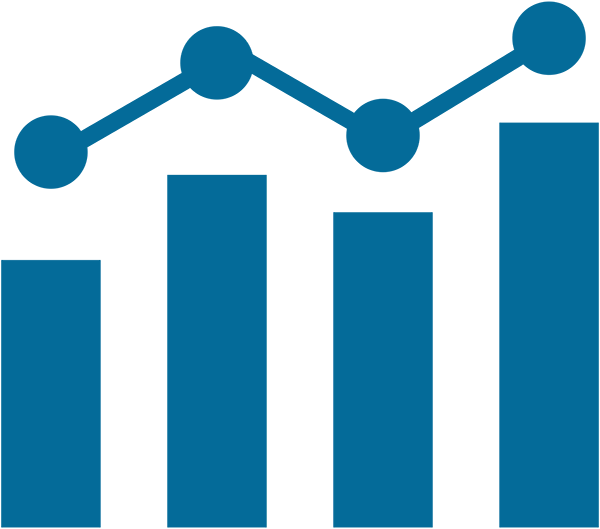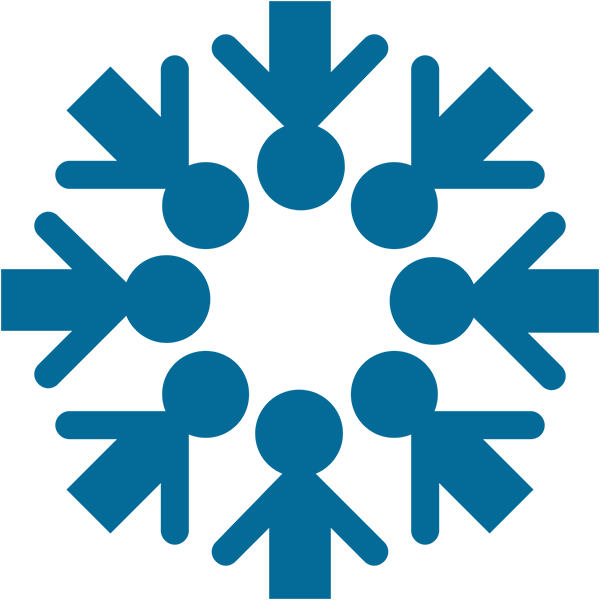Community-Centered Libraries webinars are available at no cost to all California public library workers.
Spring 2025 Webinar Series: Data Visualization
Alice Feng, Data Visualization Designer and Developer, will teach all webinars in this series.
Getting Started with Data Visualization, Part 1: Essential Data Story and Chart Types
Wednesday, January 22, 2025, 11:00 am to 12:00 pm
Since no one chart can do everything, it is important to understand how to choose the appropriate type of chart to tell your data story with. Using an incorrect chart will confuse your audience and muddle your message. This webinar will delve into six essential data stories that data communicators should know along with charts that are appropriate for telling those stories with. It will also discuss specific chart design considerations for successful communication.
Getting Started with Data Visualization, Part 2: Strategies to Increase the Effectiveness of Your Charts
Tuesday, February 18, 2025, 1:00 to 2:00 pm
Often the default charts that our chart-making tools spit out are a little lacking when it comes to telling our data story. Whether it is too much chart junk, overly cluttered axes, or ineffective titles, most of the charts we make can benefit from a little polish afterwards. This webinar will discuss both general principles and specific techniques that can be used to increase the effectiveness and impact of our visualizations.
Do No Harm with Data Visualization
Tuesday, March 11, 2025, 10:00 to 11:00 am
Data communicators must ensure that the way they analyze and present their data represents the entire community accurately. This means considering how the specific lived experiences and perspectives of the people and communities we are studying, as well as those of our readers, will affect the way we communicate data and information. This webinar will offer a set of starting points on how to apply this lens to the way we visualize data.
Watch Do No Harm with Data Visualization on YouTube
Accessible Data Reporting and Visualization
Wednesday, April 9, 2025, 12:30 to 1:30pm
Register for Accessible Data Reporting and Visualization
Access to information is a fundamental human right. When data is communicated in inaccessible ways, people can be denied critical information needed to live their lives. This webinar will discuss accessibility as it pertains to data visualization and communication including how different disabilities impact a reader’s ability to consume a chart or a map and ways to incorporate an accessibility mindset in one’s work. It then covers specific strategies data communicators can take to make their visualizations more accessible to audiences of all abilities.
Fall 2024 Webinar Series
Exploring Participatory Evaluation Methods: Enhancing Community Impact
Instructor: Dr. Andrea Girón Mathern, Founder, Centrality Research
Dive into the world of participatory evaluation methods with this webinar designed to expand your understanding and application of these collaborative approaches. This session will cover various participatory evaluation techniques, emphasizing their role in fostering community engagement, gathering authentic feedback, and driving program improvements. Participants will explore the principles behind these methods, their practical applications, and the benefits they offer for inclusive and impactful evaluation processes.
Watch Exploring Participatory Evaluation Methods on YouTube
Needs Assessment
Instructor: Vishakha Ramakrishnan, MPH, Consultant, Peridot Projects
In today’s communities, it’s essential for libraries to ensure their services, programs, and collections reflect the needs of all patrons. This webinar will guide you through the process of conducting needs assessments, an invaluable tool for understanding and addressing the unique needs of your community. Through this webinar, you will gain practical skills to design and implement needs assessments that can help drive program development, improve services, and advocate for more inclusive libraries.
Watch Needs Assessment on YouTube
Oral Histories and Storytelling
Instructor: Alia Gant, Research and Evaluation Consultant
Interested in creating a powerful way of preserving culture, sharing knowledge, and enhancing community engagement? Join us as we explore the methods and avenues to express oral histories and storytelling. By participating in this webinar, you will gain an understanding of oral histories, storytelling techniques, practical applications in the library, and ethical considerations when approaching this work.
Watch Oral Histories and Storytelling on YouTube
Photovoice: A Participatory Evaluation Approach
Instructor: Dr. Andrea Girón Mathern, Founder, Centrality Research
Join is for an engaging webinar on Photovoice, a dynamic participatory evaluation method that empowers communities to share their perspectives through photography. This webinar will explore how Photovoice can be used to gather rich, visual data that captures the lived experiences of participants, providing deeper insights into program impacts and community needs. Attendees will learn about the methodology behind Photovoice, its applications in various fields, and practical tips for implementing this approach effectively.
2023-2024 Community-Centered Libraries Webinar Recordings and Resources
In 2023-2024, two webinar series were presented as part of the Community-Centered Libraries initiative: Community-Centered Data Practices and Community-Centered Evaluation. Community-Centered Data Practices sessions are recorded and available for one year after the presentation date. Community-Centered Evaluation sessions are recorded and available here and in CALL Academy.
Community-Centered Data Practices

Learn how to apply a community-centered framework to any work you do with data. By applying this framework, you will be able to recognize and minimize bias, identify gaps and inequities within datasets, and ensure that the all voices in your community are represented. These webinars are led by Heather Krause, the founder of We All Count, a project for community-centered data science.
- Download the Community-Centered Data Practices Webinar Series Discussion Guide
- 99 Choices Checklist: a list of fundamental, nearly universal choices that lead to some of the biggest impacts.
- We all Count Forum: a supportive, knowledgeable community of people to answer data questions, share resources, and gain allies.
- Microscope Template: a tool introduced to explore data questions, data sources, and perspective.
- View the recording of Doing Descriptive Analysis with a Community-Centered Lens: Who Gets Counted? (available until January 31, 2025)
- View the recording of Questions to Ask Before Using Predictive Analysis and Machine Learning When Working With Data. (Available until July 19, 2025)
- View the recording of Writing the Data Story With an Community-Centered Lens (available until August 13, 2025)
- We All Count Community Forum: a supportive and knowledgeable community of people answering data questions and sharing resources.
- King County Data Biographies: information about different data sources, including how, where, when, and why they were collected.
Community-Centered Evaluation

Learn community–centered approaches to conducting evaluations of your public programs and services.
Evaluation for Program Planning & Decision-Making
Learn about tools that can help to integrate effective evaluation with a lens of cultural humility and relevance into your program planning and design! Already have a program up and running but want to be sure you are measuring toward the right outcomes? We can help you with that too — with a little “reverse engineering” we will share tools to help you identify what you want to measure and determine what success looks like. Instructor: Dr. Andrea Girón Mathern, Centrality Research.
- View the recording of Evaluation for Program Planning & Decision Making
- Blank logic model template: Download your own copy of the template
- Introduction to Logic Models: Helpful resource from the Kellogg Foundation
Beyond the Survey: Participatory Data Collection
Data collection doesn’t have to be all surveys – join us to learn about tools that can promote engagement, conversation, and connection! These tools support engaging all audiences by considering evaluation barriers such as language, education levels, or the intimidation that evaluation can cause. Mix in a little fun and creativity and you can take these tools anywhere! Instructor: Ellen Roth, Denver Museum of Nature & Science.
- View Recording of Beyond the Survey: Participatory Data Collection
- View Slides from Beyond the Survey: Participatory Data Collection
Evaluation Survey Design 101
Surveys are an effective tool for gathering a lot of information in a standardized way. But not every question is created equal! Join us to learn how to make the most of a survey tool and ensure that your surveys are relevant to the needs of your broader community. Instructor: Sena Dawes, Centrality Research.

